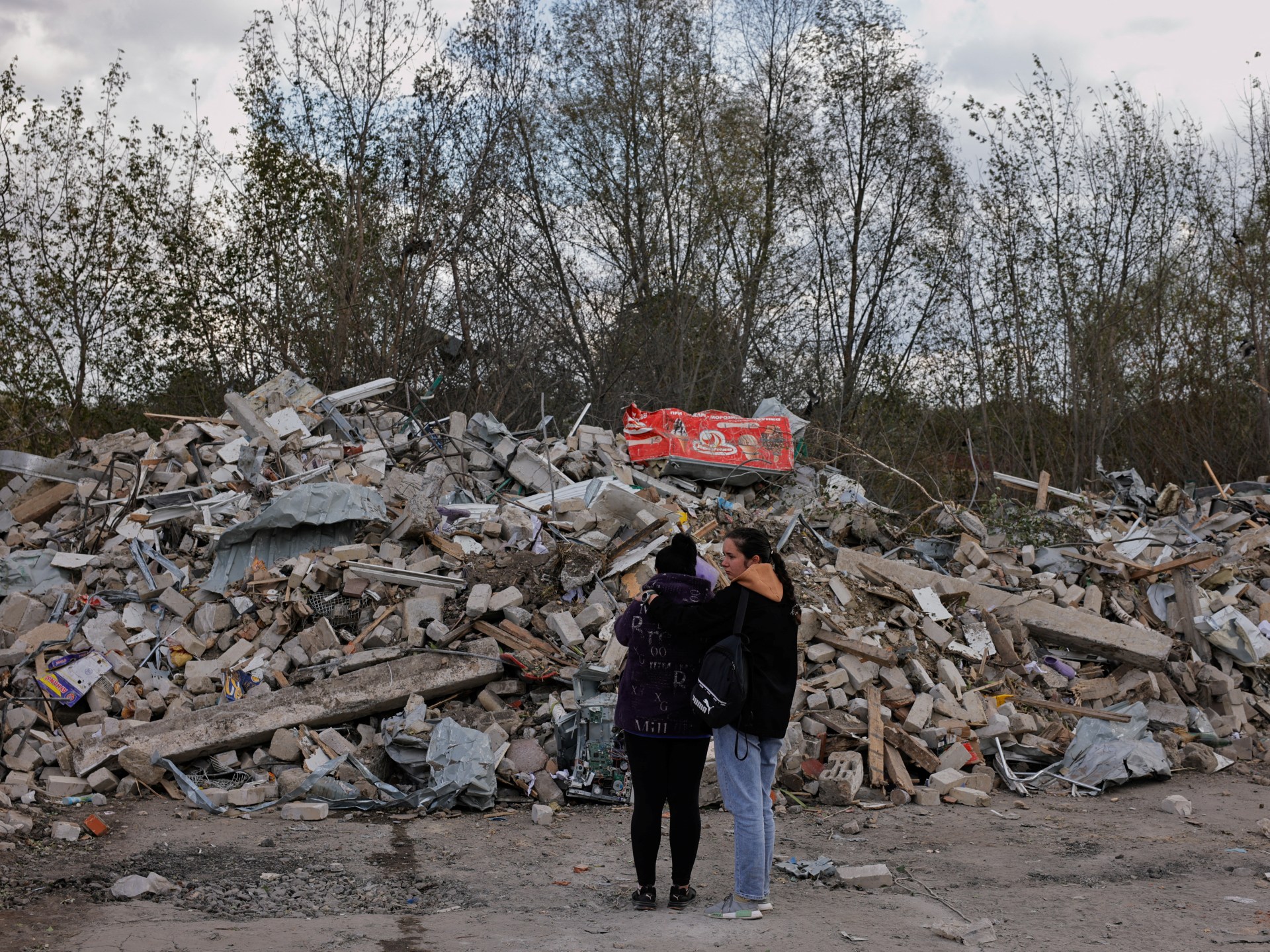Blood
‘You can still smell the blood’: Shock turns to grief in Ukrainian village
The missile attack was sudden and devastating.
In an instance, more than 50 people – or one-sixth of the population of Hroza, a remote village in Ukraine’s northeast – were wiped out.
Among those killed on Thursday in one of the deadliest attacks since Russia invaded Ukraine some 20 months ago was Olya, 36, who is survived by three children. Her husband died, too.
“It would have been better if I had died,” Olya’s father, Valeriy Kozyr said at the local cemetery as he prepared to bury her and his son-in-law.
“Oh God, you cannot punish me like this. To leave the father and take the children!” he told the Reuters news agency as he wept.
Wiping tears from his face, the 61-year-old explained that he must now work out how to care for his three grandchildren aged 10, 15 and 17.
He said he was not in the cafe at the time of the attack because he worked night shifts as a security guard, and so was spared.
“Half the village is gone, families are gone,” said Kozyr, standing beside his wife as she wept. “All the time they miss. Well, this time, they hit. Now I’ll have to cross out half my phone book.”
Nearby, three brothers were readying a plot in which to bury their parents, both killed in what President Volodymr Zelenskyy has called a “deliberate” Russian assault on civilians.
‘You can still smell the blood’
Ukrainian officials say early findings suggest that Russia used an Iskander missile in the attack on the village of about 330 people.
“From every family, from every household, there were people present at this commemoration,” Ukrainian Interior Minister Ihor Klymenko told Ukrainian television. “This is a terrible tragedy.”
On Friday, the UN human rights office spokeswoman Elizabeth Throssell also said that “given the location, given the fact that the cafe was struck, the indications are that it was a Russian missile.”
But Kremlin spokesman Dmitry Peskov on Friday denied that Russia was responsible for the attack in Hroza and repeated that the Russian military does not target civilian facilities.
Reporting on Friday from the site of the attack, Al Jazeera’s Zein Basravi said Hroza’s tiny community “has been absolutely devastated” by the attack.
“You can still smell the blood in the air, the blood that was soaked up by the ground from the bodies that were strewn all over,” he said.
“The building that was hit is unrecognisable, completely gone. There is just rubble,” Basravi added, standing next to a massive mound of broken concrete blocks, twisted metal and shattered glass.
“There are clothes, children’s toys … patches of blood where bodies were pulled out and were laying here.”
Not all of the victims have been identified.
Regional police investigator Serhiy Bolvinov told reporters late on Thursday that authorities would have to use DNA to identify some of the victims, because their remains were beyond recognition.
“Corpses lay there in that yard, and nobody could identify them,” said Valentyna Kozienko, 73, speaking near her home close to the site.
As darkness fell on Thursday, dazed emergency crews carried bodies placed in white bags onto the back of a pick-up truck. A local man knelt dnd wept as he lay his hand on the remains of a loved one before they too, were taken away.
Resident Oleksandr Mukhovatyi said he lost his mother, brother and sister-in-law.
“Someone betrayed us. The attack was precise, it all landed in the coffee shop.”

